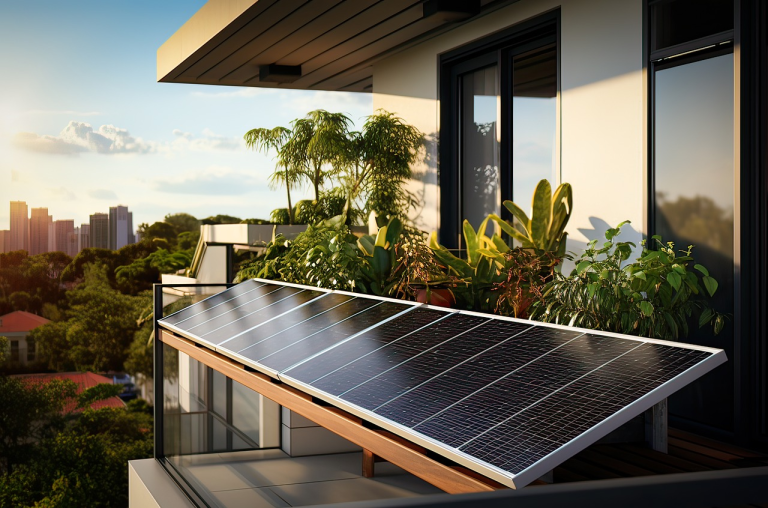In the quest for sustainability, homeowners are increasingly turning to eco-friendly solutions. Among the myriad options available, solar energy systems stand out as both a practical and impactful choice. These systems contribute to a healthier planet and offer numerous benefits to the homeowner. This transition towards greener living is not just about embracing new technologies; it’s about consciously reducing our environmental footprint while improving our quality of life.
Harnessing the Power of the Sun
The core of solar energy systems lies in their ability to convert sunlight into electricity. This process, facilitated by photovoltaic panels, is a clean and efficient way to generate power. By using branovercontractors.com for your electrical needs on your property, you can turn your home into a mini power station capable of producing its own energy.
- The Financial Benefits: The initial investment in solar panels is offset by the significant long-term savings on energy bills. Homeowners can enjoy reduced utility costs as they generate their power. Additionally, various incentives such as tax credits and rebates further sweeten the deal, making solar energy an economically wise choice.
- Increased Home Value: Properties with solar energy systems often see an uptick in market value. In an era where environmental consciousness is growing, such homes are increasingly attractive to buyers who value sustainability and the prospect of lower energy expenses.
Environmental Impact and Energy Independence
Reducing Carbon Footprint
Integrating solar panels into home energy systems is critical in diminishing our reliance on fossil fuels. Fossil fuels, such as coal, oil, and natural gas, are the primary sources of greenhouse gas emissions, notably carbon dioxide (CO2), significant contributors to global warming and climate change. By harnessing solar energy, a clean and renewable resource, homeowners can significantly cut down their CO2 emissions.
Each kilowatt-hour (kWh) of solar power generated substantially reduces greenhouse gas emissions like CO2 and other harmful pollutants like sulfur oxides, nitrogen oxides, and particulate matter. Unlike traditional energy sources, solar panels do not produce emissions while generating electricity. This clean energy production is crucial in urban areas, where reducing emissions can directly impact local air quality and public health.
Moreover, adopting solar energy contributes to a more significant global effort to mitigate the adverse effects of climate change. By lessening the carbon footprint of individual households, solar panels help slow down the rate of global warming, preserve ecosystems, and protect biodiversity. This collective reduction in carbon emissions is vital for meeting international climate goals and ensuring a healthier planet for future generations.
Energy Independence
Solar energy systems grant homeowners a significant level of energy independence. This independence is particularly valuable in areas where the electricity grid is unreliable or prone to outages, whether due to natural disasters, infrastructure issues, or other reasons. With solar panels, homes can maintain power even when the grid fails, ensuring uninterrupted access to electricity.
Energy independence also means protection against fluctuating energy prices. As homeowners generate their electricity, they become less susceptible to increases in utility rates, which can be influenced by various market and political factors. This aspect of solar energy is especially appealing to those who wish to have more control over their monthly expenses and long-term financial planning.
Furthermore, solar panels offer a practical solution for homes in remote or rural areas, where access to the traditional power grid can be challenging and expensive. They can provide a reliable and consistent energy source, eliminating the need for expensive grid extensions or reliance on less environmentally friendly options.
Embracing a Sustainable Future
The move towards solar energy is more than a home improvement project; it’s a commitment to a more sustainable lifestyle. This technology benefits the individual homeowner and contributes to a larger, communal effort towards environmental stewardship.
The Community Aspect
Adopting solar energy on a community level has far-reaching impacts beyond individual homes. When neighborhoods or entire communities embrace solar power, they contribute to significantly reducing the demand for energy from local power grids. This reduced demand is crucial in multiple ways.
It alleviates the strain on the power grid infrastructure. Traditional power grids are often pushed to their limits, especially during peak usage, leading to inefficiencies, energy losses, and increased susceptibility to outages. By generating their electricity, communities with solar panels help stabilize the grid, reducing the likelihood of overloads and blackouts. This ensures a more reliable power supply for everyone and allows for better maintenance and management of the existing grid infrastructure.
This communal shift to solar energy can lead to more sustainable energy practices on a wider scale. As the demand for fossil fuel-based energy decreases, there’s a corresponding reduction in the burning of these fuels, contributing to lower greenhouse gas emissions. This collective action is a powerful tool in the fight against climate change, as it demonstrates a community-wide commitment to sustainable living.
Sustainable Future
Solar energy systems are key in moving towards a greener, more sustainable future. Use SpotDif to compare the best deals on solar panels in your area. They offer homeowners a chance to enjoy financial and practical benefits and play a part in the global effort to combat climate change. Adopting solar energy is a profound statement of responsibility towards our environment and a step towards a brighter, cleaner future for all.

